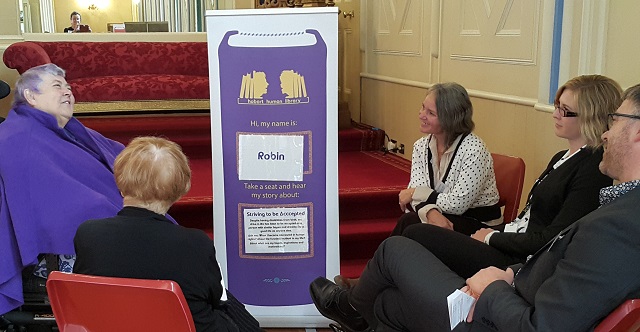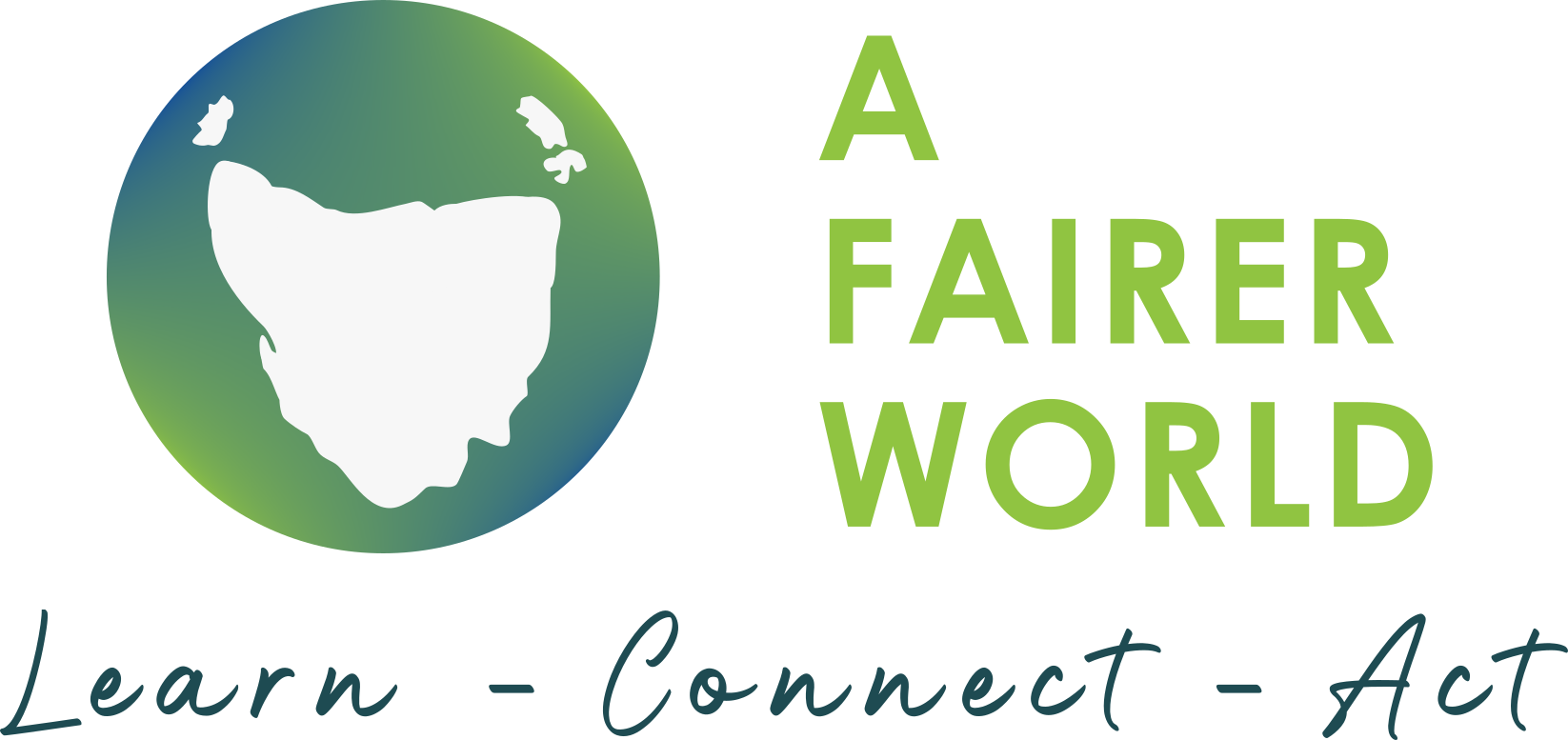Robin AM – a life of advocacy

In her early years Robin saw the community’s response to disability focus on pity and paternalism. It didn’t move her and she couldn’t connect with it at a personal level. But then she says,
“disability became a human rights issue … and that’s when I could really get involved.”
For Robin knows about disability. She was born with severe congenital deformities in both legs, one arm and double curvature of the spine. Doctors considered she would never walk and likely be intellectually disabled; they encouraged her parents to immediately place the newborn in a ‘home’ and ‘move on’ with their lives. Robin’s Sydney birth occurred in the midst of WW2 and this was the way practically all such “profoundly disabled” children were dealt with in Australia at that time.
Her father however, had other ideas, for him Robin was part of his family and that was that – despite the many difficulties they faced. For instance, there was an acute housing shortage and his family of four shared a decrepit, roof leaking five room house with another family of five. There were no government benefits to assist children such as Robin, and she had needs that had a major impact on family expenses, including special boots and calipers. Then her birth-mother died when baby Robin was only 15 months old. Faced with the impossible responsibility of earning a living while also bringing up an infant and Robin’s sister of five he quickly remarried – and had the good fortune of marrying well. With the loving support of her dad and new mother, Robin’s development defied all expectations. Despite doctors’ assurances that she lacked the necessary bone and muscle structure to ever walk, by 22 months she even started walking.
In those days it was rare for children with disabilities as profound as Robin’s to get any schooling at all, but again her dad had other ideas; he wanted her brought up as much like other ‘normal’ kids as was possible. So when she reached school age he convinced the local primary school to accept her as a pupil. However she recalls these early school days were far from happy. On account of her disabilities she was mostly segregated from the other students and on the play-ground faced ostracism and teasing. She shamefacedly recalls her best weapon of defence was her ability to deliver savage kicks! It was not a great start to her schooling.
By the early 1950s ‘special schools’ started forming and soon there were a host of special institutions catering to people with specific disabilities; separate schools for those with vision, hearing, mobility and intellectual challenges. In line with her father’s beliefs, Robin was never sent to one. In later years she has come to believe that escaping the “special school fate” is the single most important facet shaping her continuing development.
Turning eight, Robin’s life radically changed when the family moved to Hobart and she was enrolled in The Friends’ School. In many ways Friends’ proved a rich and supportive environment and Robin prospered. For instance she vividly recalls being included in playing ‘chasings’ with the other girls. Naturally with her mobility challenges she was a sitting duck to be ‘tagged’ and couldn’t possibly chase down the others when she was ‘it’. So together the girls devised a rule change! To chase and tag Robin the ‘it’ girl had to skip. When Robin was ‘it’ all the girls had to skip to get away!
She also started to shine intellectually, but her real passion was for acting so when rehearsals were announced for Maeterlinck’s play Blue Bird she applied for a part. It was then she discovered that even in the supportive atmosphere of The Friends’ School discrimination lurked — the drama teacher knocked her back saying she would “spoil the look!” Fortunately her peers lobbied hard, the teacher capitulated and she was given the role of Granny Tyl. So successfully did she play her part the school entered her most prominent scene into the then annual Hobart Repertory amateur theatre competition! And to her lasting joy she won an award!
Graduating from school with the ability to type at the creditable rate of 48 words per minute — one-handed mind you — landed Robin her first job in the Tasmanian Public Service. In the 1960s discrimination in the state public service was entrenched and unsurprisingly she moved on fairly quickly. Her continuing passion for theatre and performance had already led to her being instrumental in establishing a children’s drama group, and now it led her to the ABC and a position as a radio announcer – a job Robin held for six years.
Many people might have been content with this as a career climax, but not Robin. She decided to return to formal education, obtaining a social work degree. Going on to hold a variety of positions directly assisting Tasmanians with a disability, her work led by degrees to involvement in advocacy for the rights of people with a disability. On Australia Day in January of 1983 Robin organised and led a delegation of 27 Tasmanians to the inaugural conference of Disabled Peoples International (Australia), an organisation established “to promote the human rights of disabled people through full participation, equalization of opportunity and development.”
Later that year she established a Tasmanian branch of that organisation. She recalls a key motto of the parent organisation, “nothing about us without us.” The embrace of this consultative ethos led her to found Tasmanians with Disabilities, an organisation she presided over for many years, and which became the peak body for the representation of all individuals with a disability, their families and associated organisations, advocating for the advancement and full participation of people with a disability in Tasmanian life. As the state president, she was appointed to a variety of national councils, including the National Council of Disabled Peoples’ International (Australia) and the Disability Advisory Council of Australia. The latter council was established to advise directly to the federal Minister for Community on the formulation of a new national disability policy.
Robin was also a founding member, and for a time, Chair, of the Consumer’s Telecommunications Network an organisation that worked broadly advocating better policies for all residential consumers, but also specifically addressing the service needs of consumers with disabilities. This work saw her enter the international arena when she was appointed to the Australian delegation to the International Telecommunication Union’s Global Standards Collaboration meetings held in France in 2005 and Chicago in 2006.
Robin’s tireless advocacy led to her 1994 appointment as a Member of the Order of Australia and to her 2005 naming as Hobart Citizen of the Year. Even now, while largely in retirement Robin continues advocating for those with a disability through her work with A Fairer World.
Her contribution as a ‘book’ at A Fairer World has assumed major importance in her life. For Robin a core motivation is service to the wider community. It is central to her being, it was the way she was brought up and the way she has lived her life. In her words she has,
“…fire in the belly for social change. My sense of service is so embedded I can’t lay it down. Without it why am I here?”
But as her life draws closer to its end and she battles with pain, the side effects of drugs, and ever decreasing mobility she finds it difficult to make a meaningful contribution in many spheres. This explains why her work with A Fairer World has become so important to her, allowing her to contribute and continually renewing her sense of purpose. Read more about the Hobart Human Library program.
Robin remains rock-solid in her belief in the power of education. She particularly loves working with children and as a human ‘book’ has developed strategies to quickly build bridges to them. Her first goal is to have them see that her childhood aspirations were little different from theirs. The stories she then weaves helps them to see how education provided the pathway for her to achieve those aspirations and give them form. Through her stories Robin further demonstrates how lucky she was to have classmates prepared to assist her progress along that pathway. Every one of us, she tells the children before her, has the power to create social change, just as her classmates did for her. Robin is a compelling, powerful human ‘book’. And she is so positive, as she says,
“the kids are amazing – they just get it!“
